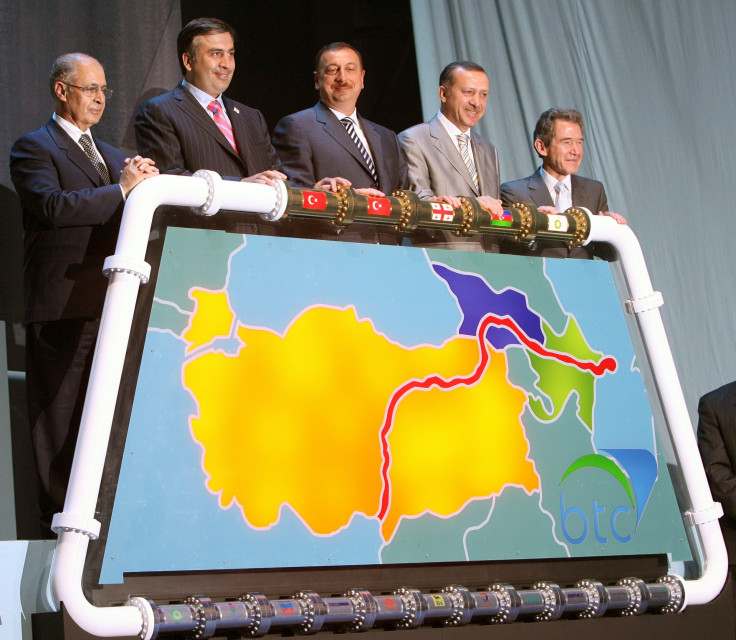US-Georgia Military Cooperation Needed As Georgia's Energy Security Needs Rise With Oil And Gas Pipelines

Situated on the eastern shore of the Black Sea, the former Soviet republic of Georgia is looking west, to the U.S., for energy security needs as a new Georgia-Azerbaijan gas pipeline is under ecological review. If approved, the Red Bridge-Marneuli pipeline will bring natural gas to Samtskhe-Javakheti, a town in Georgia.
U.S. Defense Secretary Chuck Hagel met his Georgian counterpart, Defense Minister Irakli Alasania, last week at the Pentagon, where they both agreed to expand defense cooperation.
A Department of Defense spokeswoman said that while energy security was “not a specific topic of discussion at this meeting, energy security is an important aspect of our cooperation with Georgia, as it is with many of our partner nations.”
Five years after coming out on the losing end of a brief war with Russia over a rebellious ethnic minority region, Georgia has emerged as a key player in helping to move energy resources from the Caspian Basin through two current pipelines, the Baku-Tbilisi-Erzurum (BTE) gas pipeline and the Baku–Tbilisi–Ceyhan (BTC) oil pipeline. Baku is the capital of Azerbaijan, Tbilisi is the capital of Georgia, and Ceyhan and Erzurum are in Turkey.
“Georgia has contributed to the energy security of Eurasia and has accumulated vast experience in implementation of important transnational energy projects,” said Valeri Chechelashvilli, deputy foreign minister of Georgia.
The 609-mile BTE pipeline transports natural gas produced in the Sha Deniz field, located in the Azerbaijani sector of the Caspian Sea, to Georgia and on to Turkey.
Perhaps the most important pipeline that passes through Georgia is the BTC, which transports about 1 million barrels of crude oil from oil fields in the Caspian Sea to the Turkish coast of the Mediterranean, where it then is shipped via tankers to European markets.
In 2006, Russia, with a flip of a switch, cut natural gas supplies to Ukraine because Kiev did not want to pay a hike in prices, leaving Europe in the cold. The BTC pipeline was built as a way to decrease Europe’s dependence on Russian oil and gas by transporting both oil and gas through a pro-Western country.
In recent years, Russia's huge state-run energy company, Gazprom OAO (MCX:GAZP), has faced difficulties as it has been forced to sell natural gas to Russian consumers at below-market prices. Previously it could make up for the subsidies by selling large volumes of gas to Europe at higher rates, but that has changed thanks to new pipelines bringing natural gas from the Caucasus.
“The Baku-Tbilisi-Ceyhan pipeline is a major success for the U.S. goal of enhancing and diversifying global energy supplies,” the U.S. State Department said in May 2005.
The U.S.-Georgian relationship has warmed over the years, especially since Georgia still has combat troops assisting NATO forces in Afghanistan.
© Copyright IBTimes 2024. All rights reserved.






















